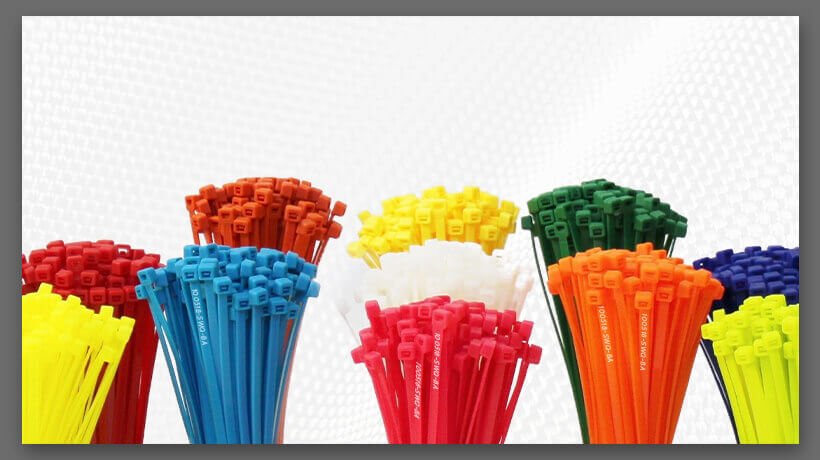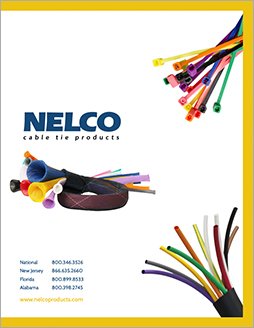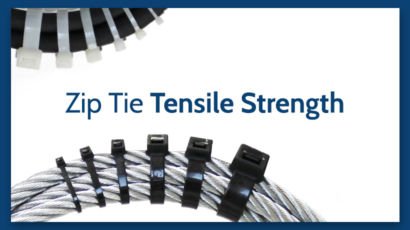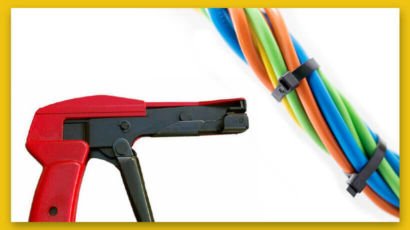Cable Ties – All About Nylon

The cable tie is one the most versatile tools around. Ergonomic, simple-to-use, and remarkably strong, there is a cable tie for practically any situation you can imagine. That being said, each classification of cable tie (‘zip tie’ or ‘tie wrap’) is engineered to meet certain demands. It’s important to understand the types of stressors your system will endure, as given certain conditions, cable ties will degrade or worse, break. This could lead to system failures or safety hazards. Nylon is the predominant plastic used for cable ties and there are a number of variants, which we’ll cover in this blog.
The traditional tie is fabricated with nylon 6/6, featuring a well-rounded resistance profile, and is suitable for most applications. It can be produced in a variety of colors for easy identification and organization of your systems. Nylon 6/6 is rated for continuous use at up to 150°F (66°C) and its operating temp range is -40°F (-40°C) to 185°F (85°C), making nylon 6/6 cable ties a great choice for most environments. However, for situations where extreme heat is a factor, such as in electrical appliances, nylon 6/6 can by heat-stabilized for continuous exposure to temps as high as 250°F. To ensure your tie meets appropriate UL standards for high temp usage, make sure heat stabilization is clearly specified.
Need a cable tie for the outdoors? General nylon 6/6 is only moderately protective from UV radiation; however, stabilizers can be incorporated in to the resin during production to increase UV resistance. For solar panel applications or general outdoor use and extended sun exposure, make sure your tie is UV-stabilized. These ties are produced in black only.
As we can see, nylon 6/6 can be fashioned to meet specific demands, but don’t assume its base properties are anything to ignore. A highly reliable solution for securing systems, nylon 6/6 is incredibly strong, flexible, and provides excellent resistance to abrasion. Though offering exceptional mechanical strength, general nylon-constructed ties are, to some degree, susceptible to chemical degradation and moisture absorption. For better protection form harsh chemicals and moisture, you’ll want to utilize ties constructed with nylon 12, as its polymer chain structure resists such hazards by design. However, as we mentioned earlier it’s vital to understand the conditions you’ll be encountering, as nylon 12 is weaker than 6/6, and thus there is a certain tradeoff in regard to mechanical strength and chemical resistance. Nylon 12 can be UV-stabilized as well, and our solar ties utilize this material for superior sun and UV resistance.
Here at Nelco Products, we offer cable ties made with a variety of nylon bases, each designed to increase resiliency in their intended application. We’ll be happy to help you find the right tie for the job. For more information on exact specifications regarding our cable products give us a call today!



